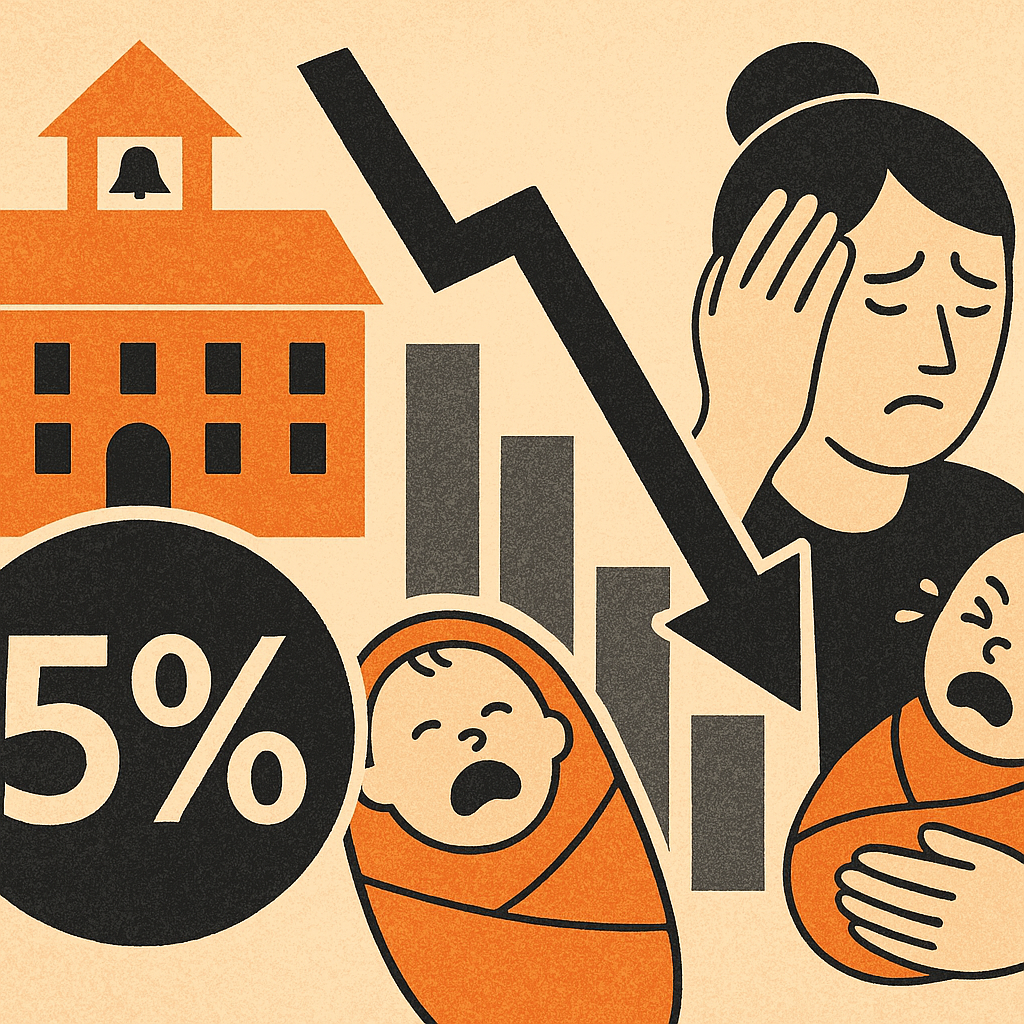Greece will suspend operations at more than 750 schools this academic year, as the country’s persistent decline in birth rates leaves classrooms without enough pupils. The closures represent over 5 per cent of all schools nationwide, extending beyond remote areas to parts of Attica, which includes Athens, where officials warn of a looming demographic collapse.
Declining Enrolment Reflects Falling Births
“Classrooms reflect the state of our maternity wards and the number of births, which have been declining for decades in our country,” said Sofia Zacharaki, Greece’s minister of education and religious affairs.
According to ministry data, enrolment in primary schools has dropped by more than 111,000 students over the past seven years — a decline of 19 per cent since 2018. Alexandra Tragaki, professor of economic demography at Harokopio University in Athens, noted that fewer Greeks are now of reproductive age compared to previous decades, accelerating the fall.
This year, 766 of Greece’s 14,857 schools will be suspended for not meeting the legal minimum of 15 pupils. Most affected are primary schools, though closures are increasingly spreading across all levels. While schools may reopen if enrolment rises within three years, most remain permanently shut. Exceptions are made for institutions in border areas and islands near Turkey, where schools are kept open despite low numbers.
Outliers and Exceptions
One rare exception is Pserimos, a small Dodecanese island, where the school is reopening for the first time since 2009 to serve just five children. “We’re keeping schools open with fewer pupils than the law normally allows — a costly decision, but one we believe is necessary,” Zacharaki explained.
Roots of the Crisis
Greece’s demographic decline traces back to the debt crisis of the 2010s, during which deaths began consistently outpacing births. Between the 2001 and 2021 censuses, the number of women aged 20–40 — the main childbearing cohort — fell by 500,000, or 31 per cent. The crisis also spurred a wave of emigration, with many educated Greeks moving abroad in search of better opportunities.
By 2022, annual births had fallen below 80,000, while in 2023 deaths nearly doubled that figure. The fertility rate has dropped to 1.35 children per woman, among the lowest in Europe, while the average age for Greek women having their first child now exceeds 32 years. Births outside of marriage also remain relatively rare compared to other European countries.
Wider Challenges and Limited Solutions
The closures will have a particular impact on rural families, where some children may be forced to travel up to 80km daily to attend school. While officials stress that “no child will be left without access to education,” demographers caution that financial incentives alone are unlikely to reverse the demographic slide.
The challenge is not unique to Greece. Even industrialised countries with robust welfare systems and high-quality childcare — such as Denmark and Sweden — have struggled to sustain fertility rates at replacement level. For Greece, the school closures are a stark reminder of the long-term consequences of demographic decline.








